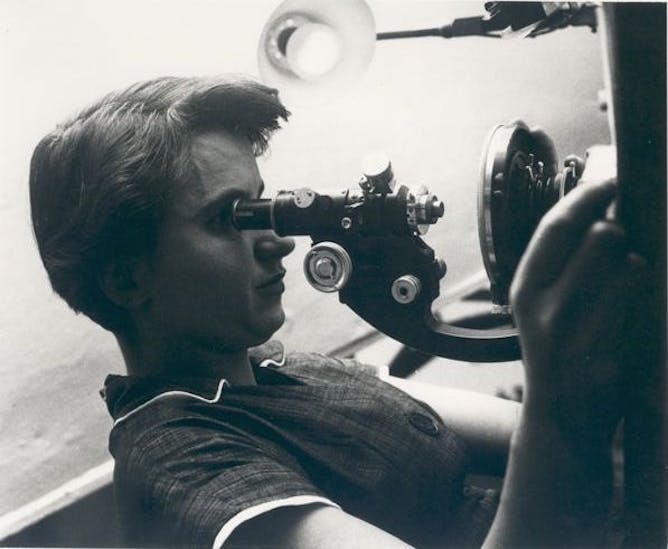|
|
|
Editor's note
|
|
Years after tales of harassment and abuse began to circulate about Bill Cosby, the US comedian has finally been found guilty of drugging and molesting an acquaintance in 2004 and is likely to face a considerable jail sentence. But for a long time the women who came forward to accuse Cosby were dismissed and ridiculed. This still happens all-too often, despite the #MeToo and #TimesUp campaigns.
A rethink of values by the National Trust’s new director, Hilary McGrady, may well lead to some of the edgier, urban aspects of Britain’s national heritage gaining prominence. But while it’s right to move away from chocolate box depictions of sleepy bucolic loveliness, let’s not forget that some of the more radical movements down the ages, such as the Diggers and the Levellers, had their roots in the countryside of Constable’s Hay Wain.
When you think of the discovery of DNA, the names Watson and Crick comes to mind. Indeed, on the blue plaque outside The Eagle public house in Cambridge, where the pair announced their discovery, you won’t see any mention of their collaborator Rosalind Franklin, who died 60 years ago at the age of 38. It’s way past time her work was recognised.
This week we also learned that many female doctors suffer compassion fatigue, that German film-maker Leni Riefenstahl was as much fascist as feminist and that, when it comes to their brains, there’s no such thing as an average teenager.
|
Jonathan Este
Associate Editor
|

|
|
Top stories
|

Attorney Gloria Allred, surrounded by Cosby accusers and their supporters after the guilty verdict.
EPA-EFE/Tracie Van Auken
Lindsey Blumell, City, University of London
The women who overcame heavy opposition to fight for justice in the Cosby rape case.
|

Mam Tor, Peak District.
Muessig/Shutterstock.
Bryonny Goodwin-Hawkins, Aberystwyth University
New director-general Helen McGrady is looking to cities for a 'radical' future at the National Trust.
|

Life over the microscope.
Jenifer Glyn/Wikimedia Commons
Mark Lawler, Queen's University Belfast
It's 65 years since the structure of DNA was first published, but the woman who made that possible remains unknown to many people.
|
Science + Technology
|
-
Lucy Foulkes, University of York
When it comes to neuroscience, there's no such thing as an 'average' teenager.
-
Matthew Robert Bennett, Bournemouth University; Katie Thompson, Bournemouth University; Sally Christine Reynolds, Bournemouth University
How we discovered ancient footprints of early human hunters and their megafauna prey.
-
George Seabroke, UCL
Detailed information about stars in our galaxy could help us discover new exoplanets.
|
|
Health + Medicine
|
-
Rajvinder Samra, The Open University
Being more caring could lead to more female doctors burning out.
-
James Brown, Aston University; Alex Conner, University of Birmingham
A new study in rats adds to the evidence that artificial sweeteners may be bad for your health.
-
Zoe Fisher, Swansea University; Andrew H Kemp, Swansea University
By focusing on one nerve, researchers have found a way to vastly improve chronic patients' health and wellbeing.
|
|
Arts + Culture
|
-
Iselin Gambert, Lund University; Tobias Linné, Lund University
From #SoyBoy to #MilkTwitter, there's a sinister side to milk.
-
Alexander von Lünen, University of Huddersfield
The controversial German film-maker was celebrated for her groundbreaking work, but the fact remains she was a prominent Nazi propagandist.
-
Sylvia Solakidi, University of Surrey
The film of Cave's first tour since the death of his son is powerful and evocative.
|
|
Environment + Energy
|
-
Mark Zeitoun, University of East Anglia; Ghassan Abu Sitta, American University of Beirut
Undrinkable drinking water is just one example of how blockades and war have permeated an entire ecosystem.
-
Alastair Marsh, University of Bath; Venkatarama Reddy, Indian Institute of Science
The world needs more affordable housing with a lower environmental impact. The stabilised supermud brick could be the answer.
|
|
Politics + Society
|
-
Ed Griffith, University of Central Lancashire
The astonishing sight of two Korean leaders crossing the border that divides them is just a first step.
-
Liza Schuster, City, University of London
An attack on a voter registration killed at least 57 people, and left scores more deciding where to go now.
-
Ornette D Clennon, Manchester Metropolitan University
At Starbucks, where the staff turnover is lower than most, anti-bias training might make a small difference. Maybe.
-
Toby S James, University of East Anglia
A pilot requiring some voters to show ID in May's local elections could be the next blow for the Windrush generation.
-
Richard Warren, University of Kent
An immigration law expert on what it's like to navigate the UK's hostile environment.
-
Karen O’Reilly, Goldsmiths, University of London
Statistics are political – so we should question the recent drop in government estimates of British citizens living in the EU.
-
Sariya Cheruvallil-Contractor, Coventry University
Britain's press reulgator ruled that The Times distorted its coverage of a case about a Christian girl placed with Muslim foster carers.
|
|
Business + Economy
|
-
Karen Jackson, University of Westminster; Oleksandr Shepotylo, University of Bradford
A deal with Europe would offer freedom, but some key sectors wouldn't be included.
|
|
Cities
|
-
Jo Richardson, De Montfort University
Millennials can't count on MPs to act in their interest – unless more of them take to the ballot box.
|
|
| |
Featured events
|

|
Martin Harris Centre for Music and Drama, University of Manchester, Oxford Road, Manchester, Manchester, M13 9PL, United Kingdom — University of Manchester
|

|
University Place, The University of Manchester, Oxford Road, Manchester, Manchester, M13 9PL, United Kingdom — University of Manchester
|

|
Whitworth Building, University of Manchester, Oxford Road, Manchester, Manchester, M13 9PL, United Kingdom — University of Manchester
|

|
Room PZA/103, Piazza Building, Campus East, York, York, YO10 5GE, United Kingdom — University of York
|
|
|
|
| |
| |
| |
| |
| |
|
|
|
|
|
|
|